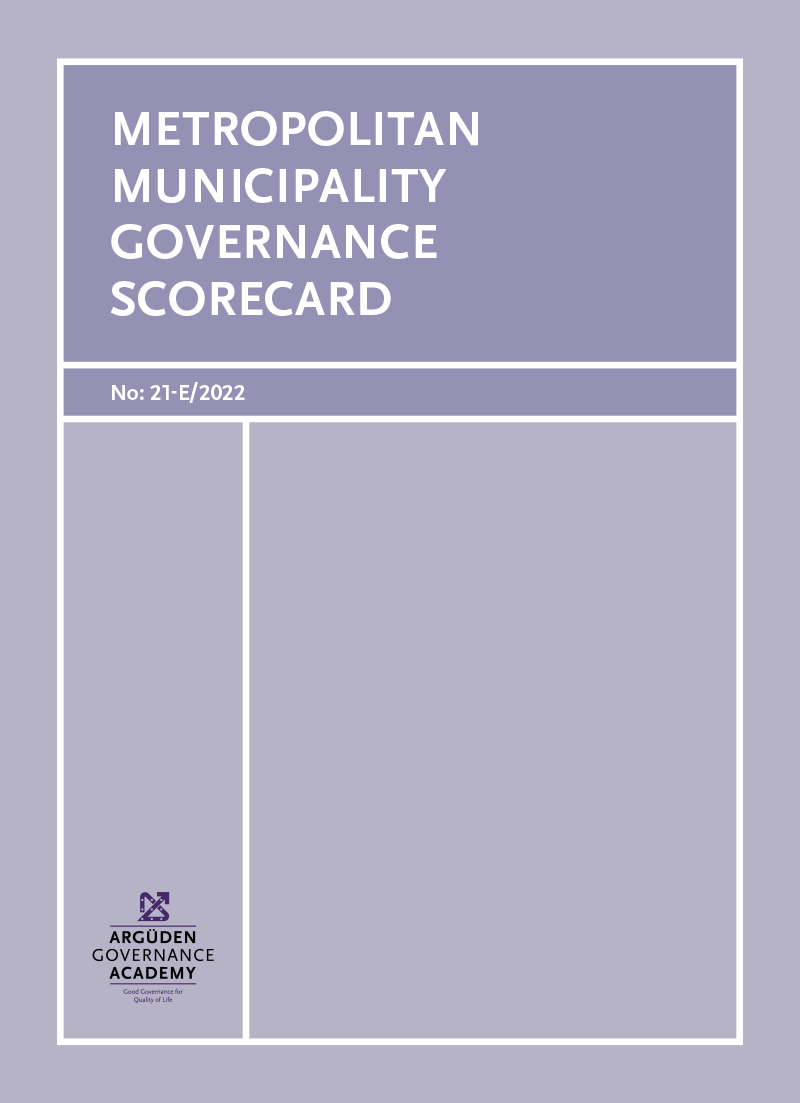Foreword
Rapid, daily change characterizes our world today; fluctuations in diverse sectors such as technology, domestic and international economies, environment, and society have altered many aspects of our daily lives. Amid this dynamic, good governance has emerged as an area of increasing importance in an era of declining trust in public institutions. Trust is needed more than ever in a world challenged by different forms of crises and transformations and good governance can generate trust in public institutions.
This level of trust is crucial for accessing resources in the relationship between states and citizens, companies and clients or civil society organizations and volunteers. Societies and sectors with trustworthy institutions can produce extensive, effective, and quick solutions thanks to the effective risk and resource management generated by trust. As for trust and the possibility of cooperation, a strong culture of good governance is needed. Good governance serves to assess risks early on, make appropriate decisions, effectively manage resources, achieve coordination as well as monitor and improve procedures and processes.
Societies and sectors with trustworthy institutions can produce extensive, effective, and quick solutions thanks to the effective risk and resource management generated by trust.
Argüden Governance Academy has aimed at promoting good governance in the public and private sectors, civil society, and global arena since its foundation in 2014. We believe in the importance of our work for a sustainable future, social development, and human welfare. We work to strengthen good governance in the daily lives of citizens as well as at a national and global scale through our research, training, and communication activities. To this end, we have conducted research on public-private sectors and civil society and developed models and tools. We focus on making the phenomenon of good governance ‘concrete,’ ‘measurable’ and ‘open to continuous development’. As such, we support sustainable futures and quality of life based on our contribution to the quality of management and performance in institutions.
We pay particular attention to local governments and good governance in cities as local governments directly and extensively affect the lives of citizens. Local governments with a strong good governance culture produce more extensive, sustainable, and effective solutions for the environment, individuals, and economy.
Local governments with a strong good governance culture produce more extensive, sustainable, and effective solutions for the environment, individuals, and economy.
In a nutshell, we have aimed at acquiring and spreading knowledge for good governance and development by means of projects and publications such as the Governance Scorecard of Municipalities for Istanbul Districts in 2018, Inclusive Municipality Governance Scorecard in 2019 and Local Development Guide for Business in 2020. We implemented the Integrated Social Service Governance Model project during the first year of the Covid-19 pandemic. All these works have targeted the development of a concrete, clear and understandable culture, and practice of good governance at the local level and in the daily lives of citizens.
We now present an innovative model at the global level: the Metropolitan Municipality Governance Scorecard (MMGS). This unique model measures and assesses the governance culture and practices in metropolitan governments from a citizen-centric perspective. Our model is a democratic and innovative tool that functions based on the principles of good governance and digital public documents, information and data generated for the use of citizens. The model enables citizens to monitor and evaluate the metropolitan governments empowered and financed by the citizens themselves in terms of good governance. MMGS enables the measurement and assessment of the quality of governance in these institutions through the data they generate. The model also develops an approach supporting the institutional development of metropolitan governments as it creates a database of scorecards and good practices. The model can be used as well by civil society organizations, media, and academic institutions.
The development of good governance in metropolitan municipalities enhances its citizens’ quality of life.
The development of good governance in metropolitan municipalities enhances its citizens’ quality of life. Moreover, the quality of life for various socioeconomic levels increases proportionately to increased efforts towards sustainable development and inclusive social services. Meaningful and effective participation supports the quality of decision making and resource management. When the quality of public information is strengthened, the level of trust in metropolitan municipalities increases. Good governance further enhances the quality of institutional functioning, and therefore institutional capacity and working area. In sum, the development of a good governance culture in metropolitan municipalities generates benefits in several areas.
With this study, we aim at promoting more integrated, inclusive, effective, and collaborative metropolitan governments, which then lead to more sustainable countries and ultimately to a more sustainable, improved, and livable world. This process starts at the level of the local governments. As a global voluntary thinktank based in Istanbul, we hope that the Metropolitan Municipality Governance Scorecard project will contribute to efforts towards democracy, sustainable development, and quality of life in local governments not only within our country but also across the world.
Best regards,
Dr. Yılmaz Argüden
Argüden Governance Academy,
Chair of the Board of Trustees



